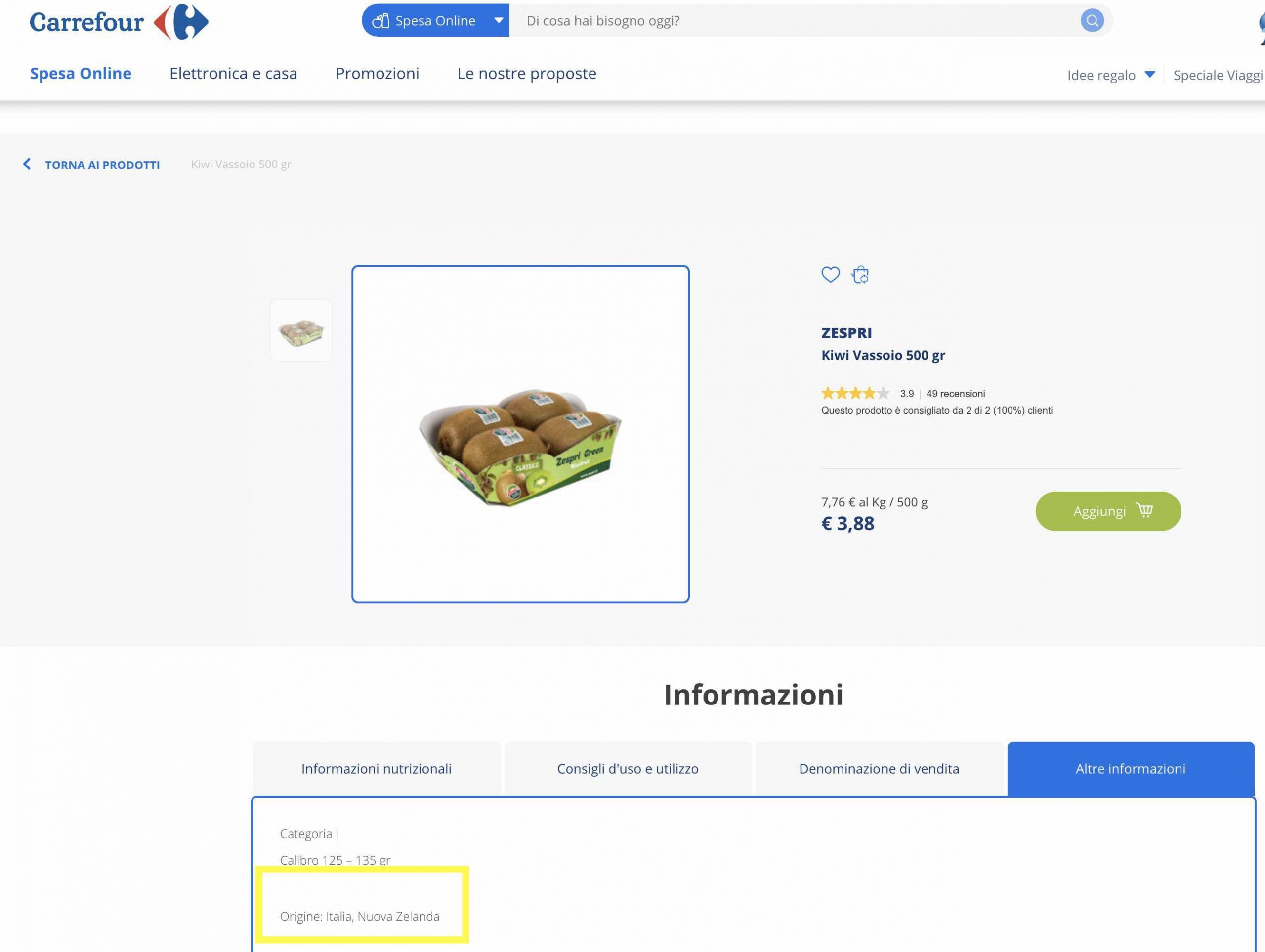Ecommerce in the dark, information lacking and/or illegible. In defiance of every rule-which applies in the physical store as well as in the online store-Supermarket24-Everli, Carrefour and Conad continue to taunt consumers. And perhaps also of the Antitrust Authority, which may have already called to account the wrongdoing reported two months ago by the Égalité association. New audit, new report to the Competition and Market Authority (AGCM).
From Supermarket24 to Everli, a leopard can’t change its spots.
The black palm goes to Supermarket24, a company founded in 2014 in Verona and renamed Everli, on 6.7.20, with ambitions of international growth. Communication is not its point of excellence. And not only because of the blunders on proper consumer information (EU reg. 1169/11), which we will see in detail below.
In emails presenting its new look, the company says it has‘achieved leadership in the Italian market, with more than 100 partnerships between distributors and manufacturers, and delivered more than one million charges in 50 Italian provinces.’ Doing the math, it means that the average annual volume is 166 thousand deliveries, 3,300 per province in a year (277 per month per province). The self-praise then omits to refer to the operationalflop during the lockdown.
Peace of Mind?
A capital injection enabled Supermarket24 – Everli to acquire a Polish home delivery startup (Szopi) and expand operations in Poland.
‘The company’s mission is to provide greater peace of mind for people by reducing the complexities of shopping: by canceling queues, parking lines and heavy bags, Everli allows users to focus only on the pleasant aspect of the shopping experience, wherever they are.’
I wish it were true, sang Patti Pravo. All it takes is a small tour on the Venetian ecommerce platform to indispose consumersAware of their rights. Even more so when reading the introductory talks:
‘We want to become a benchmark brand for the international market, with a name that is easy for everyone to remember and instills in those who choose us a sense of serenity, what the British call Peace of Mind. Just think of the profound change that the Coronavirus emergency has brought about in the use of online shopping: it is no longer a mere convenience, but a necessary solution to eliminate complexities’ (Federico Sargenti, Everli, CEO).
The patch is worse than the leak
Two months after being reported to the Antitrust Authority, Supermarket24 – Everli – continues to violate the first basic rule ofecommerce, informing consumers about the food products on sale.
Ingredients-essential health-relevant information-are sometimes absent, sometimes given in illegible characters. And only on the products of the leading brands (e.g., Mulino Bianco, Barilla, Ferrero) – with discrimination against their competitors – is a label provided with ingredients and nutritional values, yet it indicates allergens separately. Instead of, as is proper, in ingredient list with highlighting. Some examples in the images to follow.
[masterslider id=”166″]
Fruit of unknown origin
On fruit the ‘platform of serenity’ is stinging. As two months ago, no information on origin: a cogent regulatory requirement, not voluntary. Impossible to know whether the food came from Italy, Spain, Turkey, South America, North Africa.
[masterslider id=”167″]
The illegality is repeated for all the large-scale retail signs traveling through Supermarket24-Everli. And they also infect the Polish platform, as we can see.


Carrefour runs for cover, but slips on fruit
Carrefour, two months after the report, seems to have made only partial efforts to remedy the illegalities. In its ecommerce portal, processed products are now always accompanied by the list of ingredients-with evidence of allergens-and the nutrition table.
For fruit, however, it still mocks consumers. Sometimes the origin is correctly stated (very often Spanish, despite huge Italian production), other times the confusion is maximum. See the cases of lemons with three different origins (Italy, Spain and Argentina and that of kiwis with origins ‘Italy and New Zealand’ (!).


Compared with the French portal, the Italian site is less user friendly. Product information should be searched in the ‘More Information’ drop-down menu, whereas in carrefour.fr it is communicated immediately in the storefront. With two aspects to mention. While in Italy Carrefour sells mostly Spanish fruit, in France it sells almost only domestic products. In obedience to repeated calls from the transalpine government-not also from the Italian government-to support the national economy.


Conad, an outlaw leader
Conad, the third operator reported to the Antitrust and ICQRF, continues to float in illegality. This is a very serious fact, considering its position as the leading retail brand in the Bel Paese, having acquired the Auchan Italia network.
On the website altuoservizio.conad.it, the labeling of processed products is almost always absent or illegible, as it relies on very poor quality photographs. From time to time, without any logic, a product sheet pops up complete with ingredient list and nutrition table. But they are exceptions, as the pictures below show.
[masterslider id=”168″]
Origin begins to appear on the fruit , but violations remain. See the case of apples, whose origin could-perhaps-be inferred from the acronym used among traders. Again, no respect for consumers.

New report to the Antitrust Authority
The scenario is miserable, the giants persist in systematically violating the rules that preside over consumer protection. The Égalité association then proceeds to update the Competition Authority. Subject to further protective actions, for the best protection of citizens and consumers who are no longer willing to suffer further mockery.
Professional journalist since January 1995, he has worked for newspapers (Il Messaggero, Paese Sera, La Stampa) and periodicals (NumeroUno, Il Salvagente). She is the author of journalistic surveys on food, she has published the book "Reading labels to know what we eat".








